
11 Benefits of Breastfeeding
It's well documented that breastmilk is a great source of nutrition for baby but what other benefits are there for mum and baby? For mum Research has shown that breastfeeding... Læs mere »

It's well documented that breastmilk is a great source of nutrition for baby but what other benefits are there for mum and baby? For mum Research has shown that breastfeeding... Læs mere »

Studies have shown that the health benefits of breastfeeding for both mother and baby are extensive, and include immediate benefits, longer term benefits, as well as psychological benefits and helping to establish a close bond. Benefits to mum From... Læs mere »
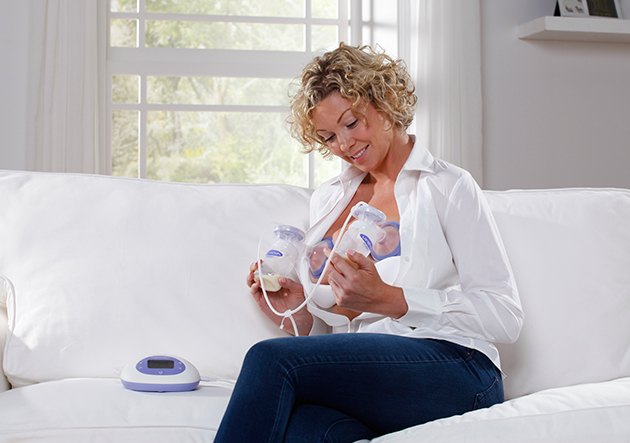
Expressing will help to empty and stimulate your breast to make more milk. Express after your baby has had a breastfeed. To start with you may not get much milk – persevere as your body needs time to adjust to the increased demand If you are not breastfeeding... Læs mere »
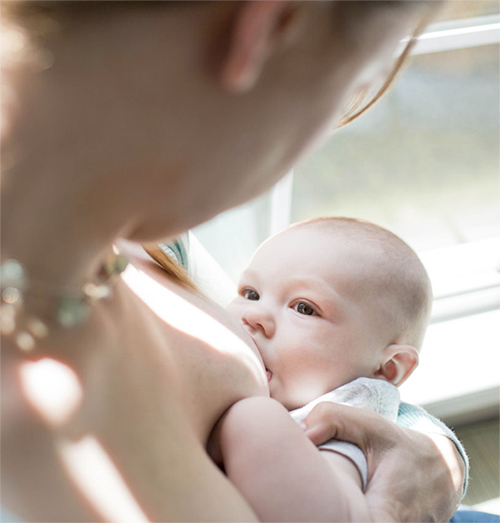
Don’t worry, there are lots of signs you can look out for to allay your fears. Your first milk, colostrum, comes in very small quantities (an average of 37ml over the first 24 hours, gradually increasing daily as the baby suckles more). As new-born babies... Læs mere »
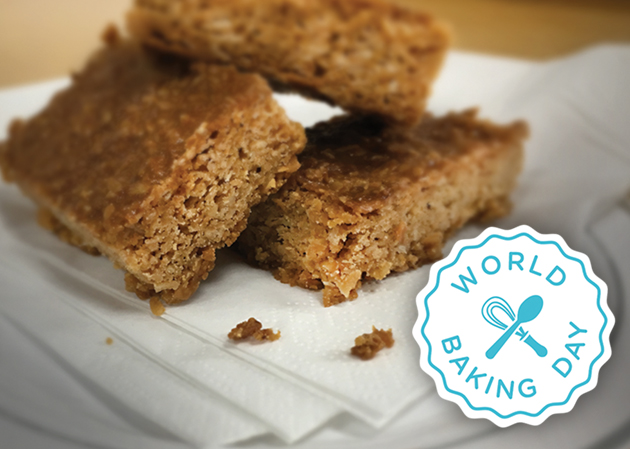
We've selected some of the most delicious sounding bakes for World Baking Day 2017. Here at... Læs mere »
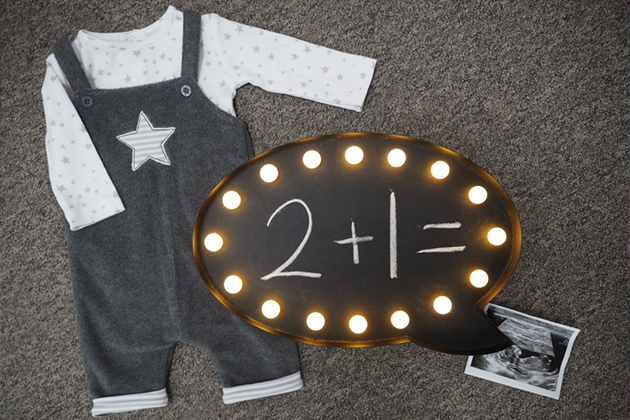
Letting friends and family in on your secret can be one of the most exciting moments during a pregnancy and there are countless ways to make the announcement memorable. Regardless of how you... Læs mere »

Whether it’s your first or your third, having a new baby can be overwhelming, and many times your relationship with your partner ends up on the back burner. As focused as you are on your new... Læs mere »

You get a lot of advice when you're pregnant but it's often the case that nothing can prepare you for the lack of sleep that arrives with a newborn. As you reach the end of your pregnancy there... Læs mere »

It’s been nearly a year since your little one came into your life and what a whirlwind it has been! Your baby has grown and changed and so have you in terms of becoming a mother. But what about you as the person you were before pregnancy... Læs mere »
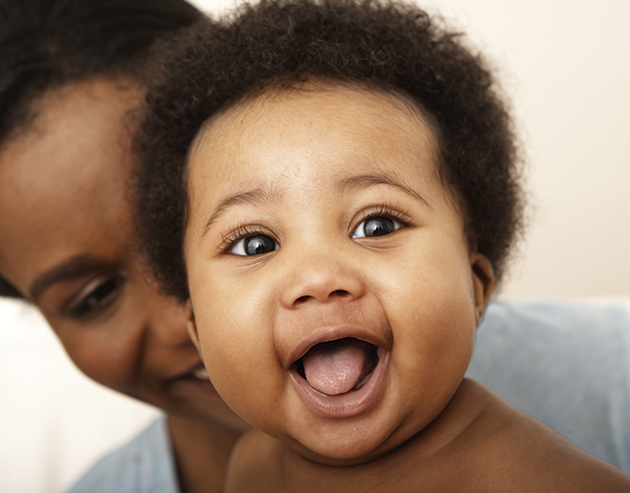
Breastmilk as a natural vaccine and remedy and is the “perfect food” for your baby. It’s easy to digest, and because it’s made of live cells, your baby’s body can easily digest and absorb it. Breastmilk... Læs mere »

Your baby is becoming more mobile and active so he may start resisting getting into a routine—especially a bedtime routine... It may become harder to keep your baby interested in the quiet routine of bedtime that you have been using... Læs mere »

I am sure we have all heard it at least once… “Is he still breastfeeding?” and for many parents, the idea that their child would still be breastfeeding at an age where he could walk up and ask for milk was something they never imagined!... Læs mere »

For the last 11 months and before that when you were pregnant you may not have felt like yourself. During pregnancy you were carrying your bundle of joy-to-be and since birth you have been caring for him 24/7. It’s time to start... Læs mere »
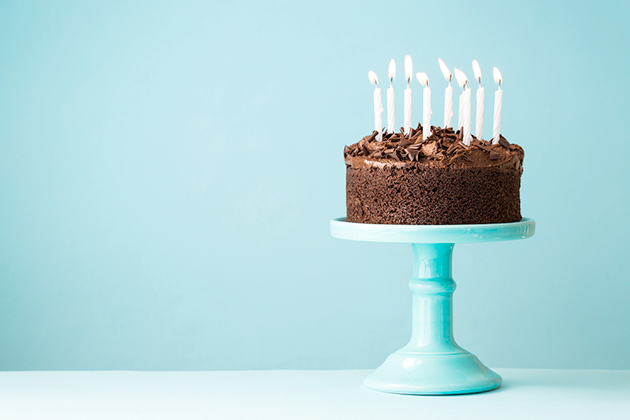
It’s been a year since you and your baby first met and what a whirlwind it has been for both of you. So this milestone is as much for you Mum as it is for your baby. You know how baby is celebrating his birthday but what are you... Læs mere »
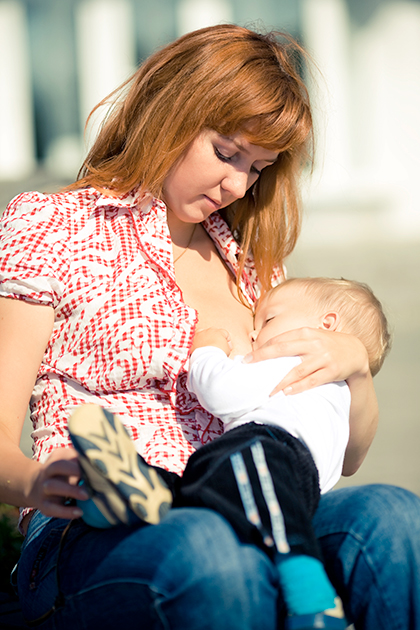
You’re a dab hand at this going out business… or so you thought. You have just got used to being on the move with baby and now your baby’s on the move without you! Your small dependent human is starting to become independent. ... Læs mere »
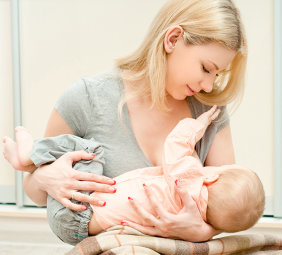
So, your baby is growing up and still breastfeeding! – Did you ever imagine you’d manage this long? Well done! And keep going for as long as you both are happy to! ... Læs mere »
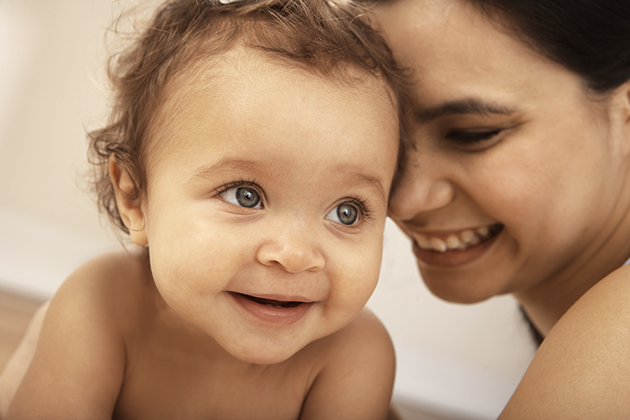
If you are currently breastfeeding and already dreaming about getting pregnant again, you are not alone! Many women think about adding to their family before they’ve finished breastfeeding. While... Læs mere »
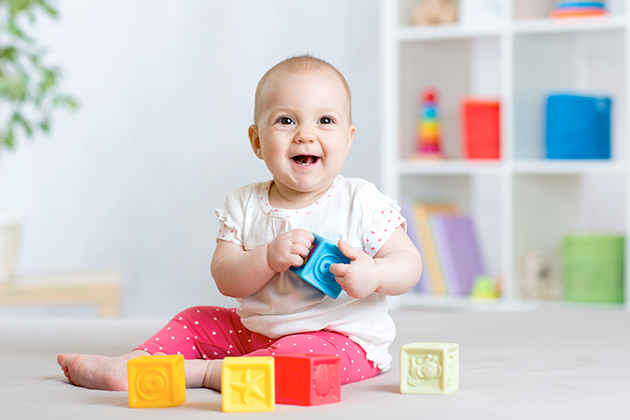
At 11 months old your baby is becoming an active and independent little soul and you may be wondering how to entertain them, but your baby’s personality could help you understand the types of play he/she is happier with.

Your breastfed baby has had the best start in life that you could give. You have provided your baby with the ability to fight off bugs; to grow and develop, and now you are thinking about how to look after his skin.

If not already doing so your baby is on his/her way to walking at 10 months. Being on the move has never been so much fun for babies but in the bath that may be a recipe for disaster. Read our advice on how to make bath time fun and safe.

As more and more studies are released on the harmfulness of certain ingredients found in personal care products, Mums are turning to natural baby toiletry products as a way of avoiding the potential hazards of chemical based products. Natural ingredients are... Læs mere »
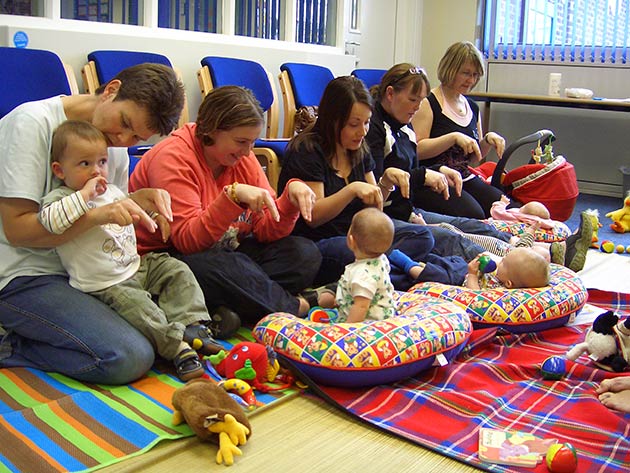
Makaton Signing for Babies sessions are designed for you and your child to have fun and learn together.
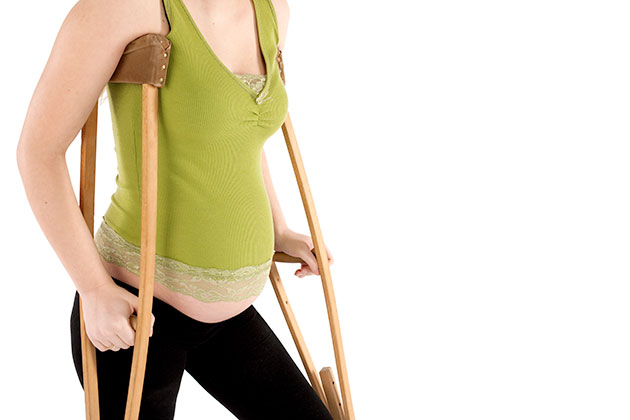
One of the myths of pain in our symphysis pubis is that it is ‘just our hormones’ and it’ll go when you’ve had your baby! For those who have had symphysis pubis dysfunction know that it is not just ‘hormonally driven’ and... Læs mere »
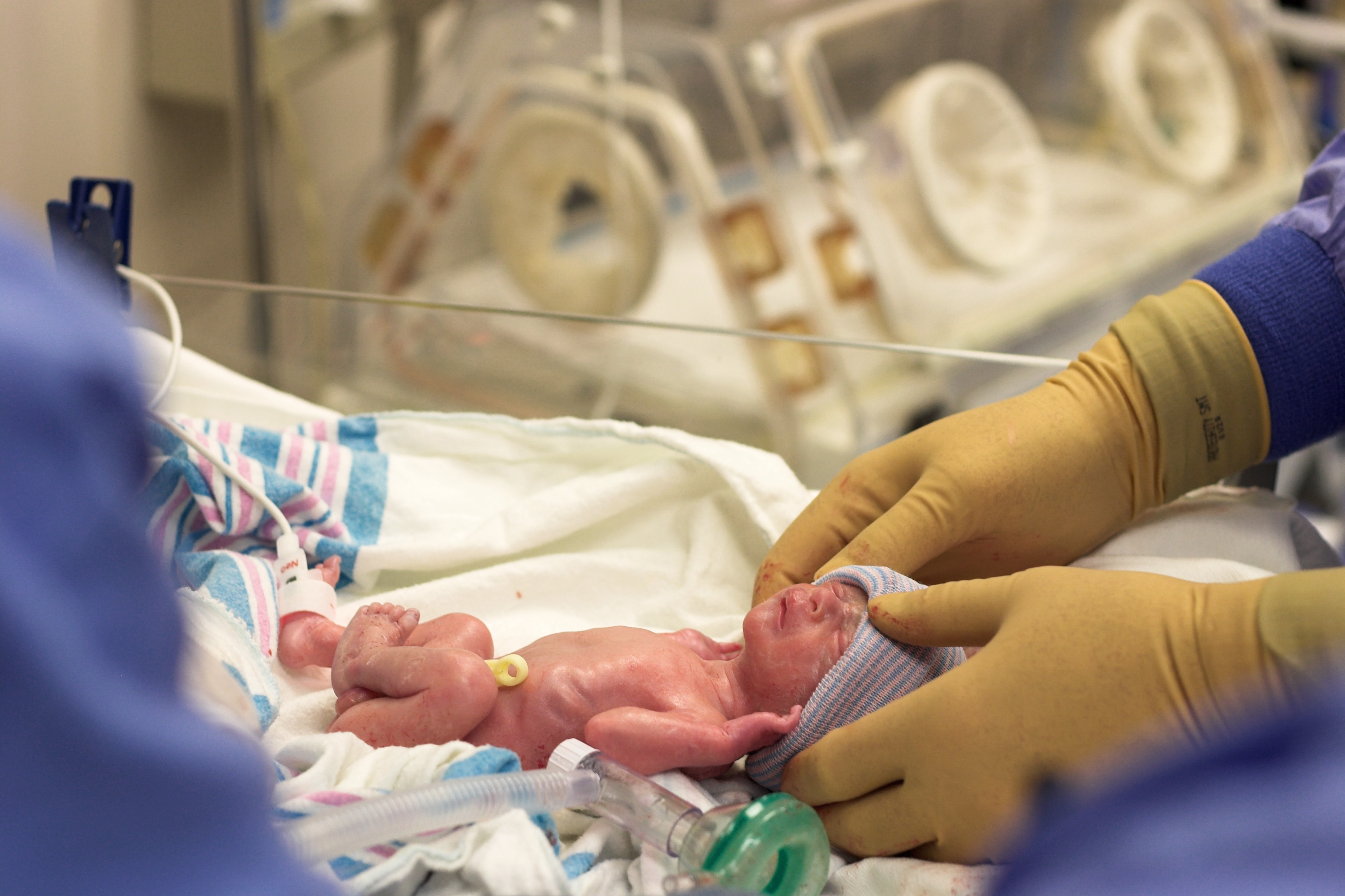
Some babies are born too early or born needing some extra health care. We know that breast milk is ideal for human babies and early or sick babies are no different. For them having colostrum and breast milk will not only give them... Læs mere »

Understand how expressing milk can support your feeding journey with twins.
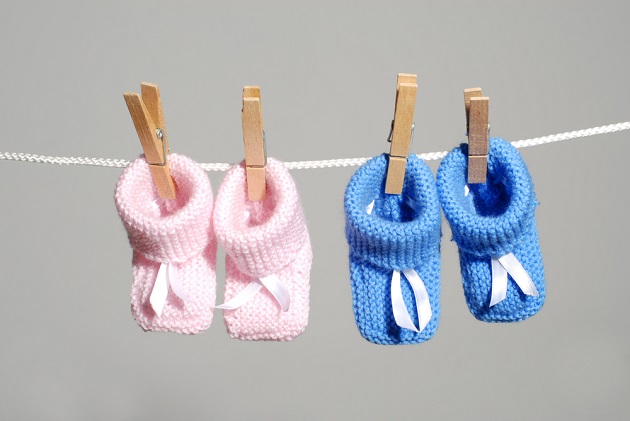
Deciding whether to find out the sex of your baby prior to the birth is a very personal decision… which ultimately comes down to choice. Before the late 1970’s (and in some areas even later) mums didn’t have the option to find out and now as times have changed... Læs mere »

This sensation is often referred to as “quickening”, it may feel like a fluttering of butterflies or a light tapping in your stomach. Sometimes these movements can be confused with pregnancy side effects like wind or hunger pains. The strength of your baby’s... Læs mere »

If you are lucky, you will experience a ‘pregnancy glow’, but not all women do. You may display more unwelcome changes and it is important to remember that most of these disappear once you have given birth. Morning sickness and nausea This usually... Læs mere »

Braxton hicks contractions Your uterus will start contracting gently after about 7 weeks but you may experience these contractions only after the middle of your pregnancy. The tightening will last for about 30 seconds and this could happen once or twice... Læs mere »

This type of bonding can happen very quickly within minutes or hours of birth, or it can take a lot longer, and this can (but not always) depend on other reasons. Perhaps there were complications during the birth, or the baby was born with health problems or he/she... Læs mere »

Antenatal Education Many areas will also offer specialist breastfeeding classes, these classes offer advice and techniques for those intending on breastfeeding. During this class you will learn about different breastfeeding positions and how to get your... Læs mere »
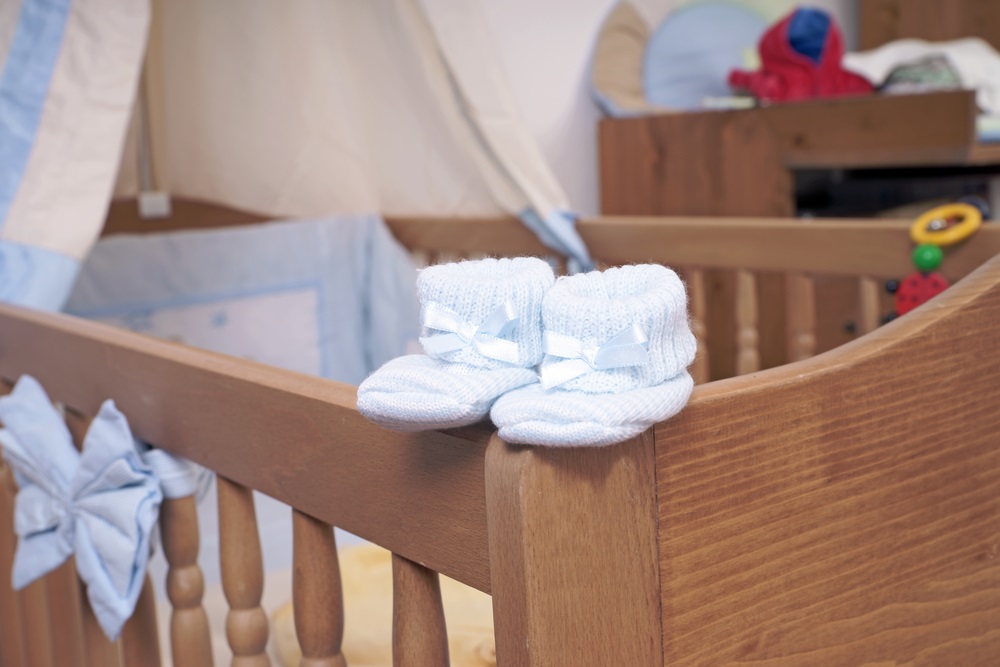
1. Think about where in the house you’d like the nursery and its practicalities Your little one will initially share your bedroom for the first 6 months, ideally in either a moses basket or cot. When it comes to planning the nursery and where... Læs mere »

If travelling by car it will be important to consider car seat safety. All babies and children are required by law to use a car seat until they are 135cm in height or 12 years old. Choosing the right car seat for your baby’s age and weight is crucial and you... Læs mere »

For the first six months your baby should sleep in a moses basket or cot in the same room as mum and dad. Once your baby is six to eight weeks he will probably start to sleep for shorter period during the day and longer at night, but he’ll still wake up to feed... Læs mere »

Here are a few more tips to help you pump successfully: 1) One of the most important things you need to do is to keep yourself hydrated, have a glass of water before you start pumping and another next to you whilst you’re pumping. 2) Some things that... Læs mere »
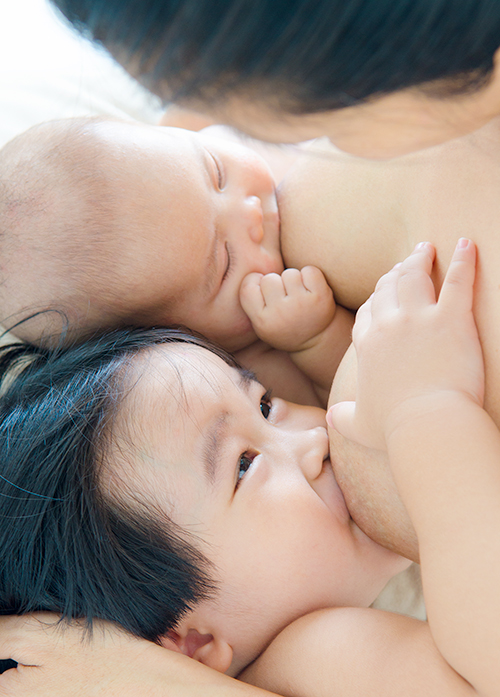
Expecting Multiples NICE Guidance (2011) advises care for women expecting multiples should be provided by a nominated multidisciplinary team consisting of a core team of named specialist obstetricians, specialist midwives and ultra-sonographers, all of... Læs mere »

What is thrush: ● Thrush is an overgrowth of the yeast organism candida albicans. ● This organism is always present in our bodies but has a tendency to overgrow when we are ill, tired, pregnant or using antibiotics. ● Overgrowth may also happen... Læs mere »

How the baby is born can have an influence on this very first hour… analgesia/assisted/caesarean birth may make the baby somewhat less instinctive in its behaviour, as well as influence the mother’s ability to interact with her baby in the hour after birth... Læs mere »

Safe temperature storage guidelines The following are guidelines from La Leche League International on how to safely store breastmilk at various temperatures:

It’s important to know that exclusive breastfeeding is recommended for the first 6 months of baby’s life and in combination with other foods up to the age of 2 years and beyond. During this time, you may choose to express and have a supply of breastmilk always... Læs mere »

10-13 week dating scans Between 10-13 weeks you will receive a Dating Scan which establishes your due date. During this scan, the sonographer will use gel on your stomach to move a hand-held transducer device over your skin to view an image of your baby. This... Læs mere »
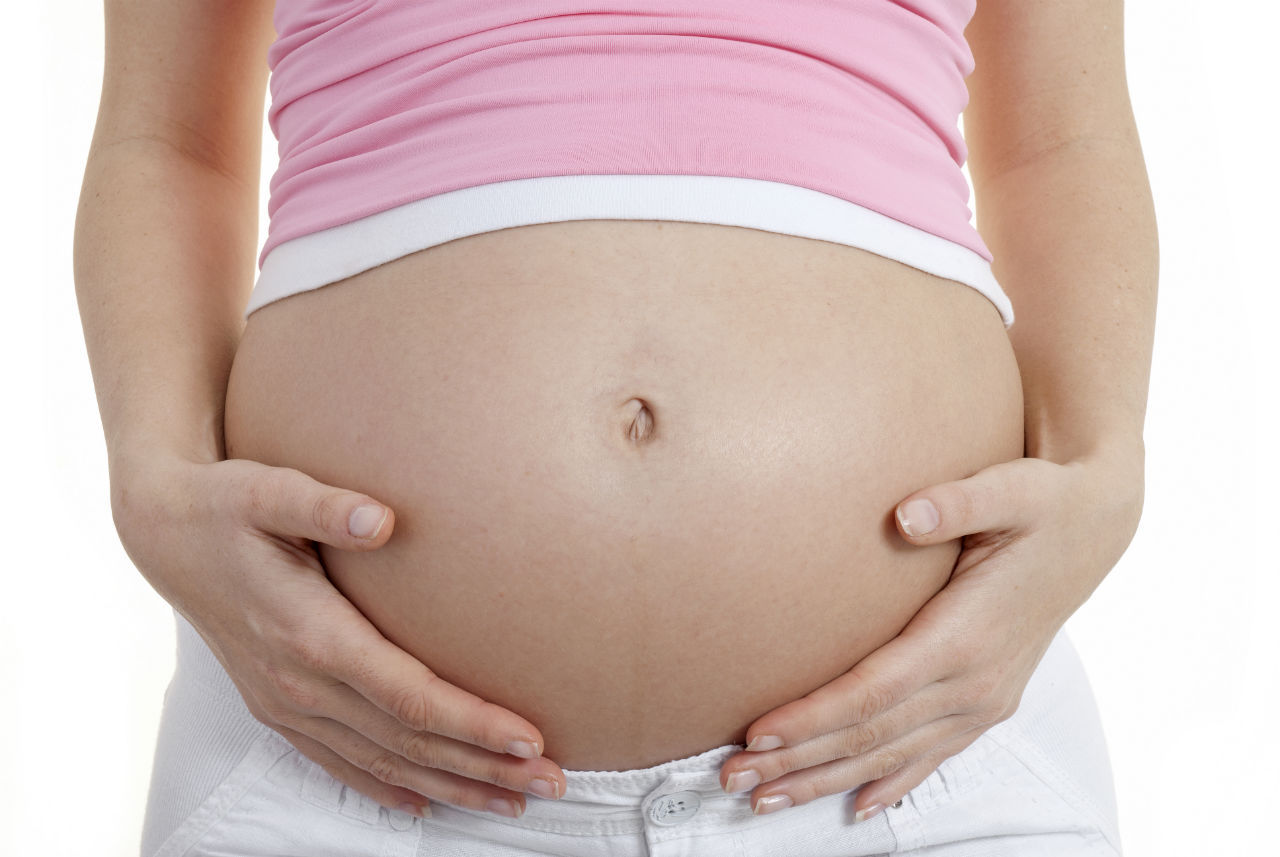
Telling loved ones For many expectant parents, making that first decision to break the pregnancy news to family and friends may seem a little daunting. Some of you will be itching to shout it from the roof tops avoiding having to cover up why you cannot... Læs mere »

However, this does not mean ‘eating for two’. Your pregnant body is even more efficient at making use of the energy you get from the food you eat, and you need no extra calories until the seventh month of your pregnancy. From then until you give birth,... Læs mere »

There are also many benefits to the mum: Improves muscle tone, strength and endurance which helps prepare you for labour Boosts your mood and helps prevent postnatal depression Improves sleep Reduces the aches and pains... Læs mere »

Eating well does not necessarily mean spending lots of time in the kitchen: many nutritious foods are great for snacking, or can be prepared very quickly. You may find it easier to ‘eat to hunger’, choosing foods that keep you feeling energetic! Breastfeeding... Læs mere »
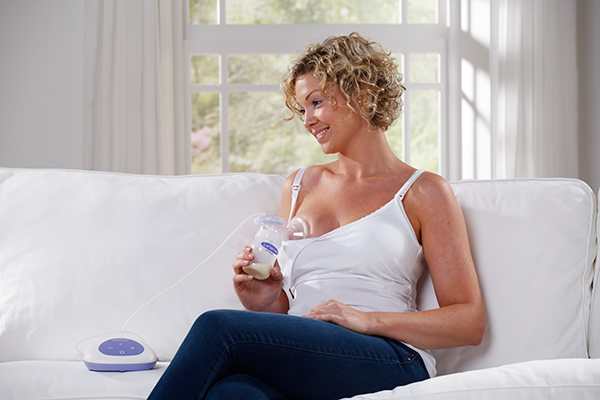
Expressing breastmilk is the act of removing milk from your breast, either by hand or using a manual or electric pump. You may want to express milk if: your breasts feel uncomfortably full you will be spending some time away from your... Læs mere »
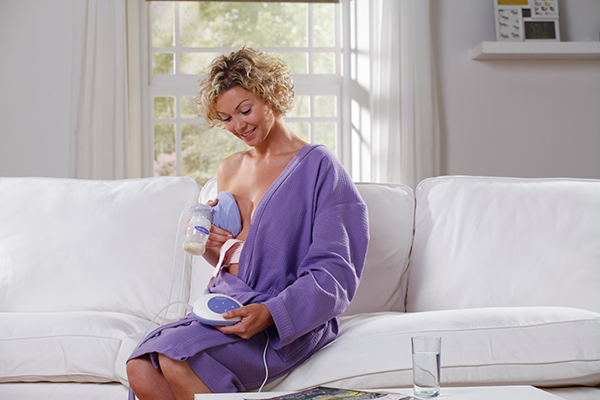
Den første beslutning, du skal tage, når du køber din brystpumpe er, om du vil købe en manuel brystpumpe (håndbetjent) eller en elektrisk / batteridrevet brystpumpe. Du bliver nødt til at tage hensyn til, hvor ofte du vil pumpe, hvor længe du bliver nødt... Læs mere »
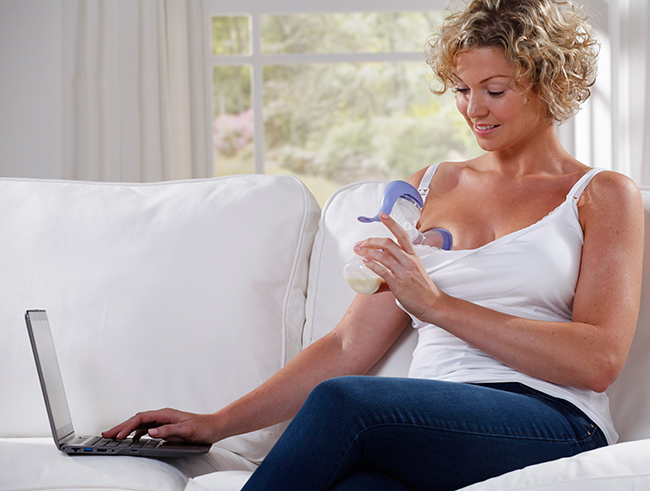
However, this does not mean that you have to stop breastfeeding. You could: request flexible working hours organise child care close to your workplace, so that you can breastfeed during breaks as well as when you are at home express... Læs mere »

Start pumping and freezing your milk, in date labelled containers, about a month before returning to work. This will enable you to stock up, to get used to your pump, and work out how long each pumping session will take. Advise your employer of your intention... Læs mere »

Here are a few more tips to help you pump successfully: 1) One of the most important things you need to do is to keep yourself hydrated, have a glass of water before you start pumping and another next to you whilst you’re pumping. 2) Some things that... Læs mere »
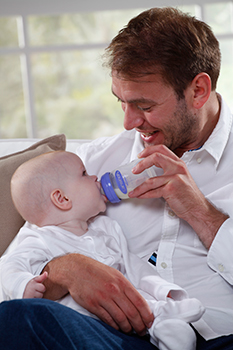
The style of bottle feeding currently being used has been associated with various increased risks, including overfeeding - which can lead to other problems and colic like symptoms. For these reasons Health Professionals now promote the new Paced Responsive Feeding... Læs mere »

Preparing for baby’s arrival is one of the most exciting adventures you’ll have during pregnancy! So much to do and only 9 months, it’s now actually less than that now! Don’t feel overwhelmed, all can be solved with just a little bit of planning. Here are... Læs mere »

In preparation for this you may feel like there is a lot to think about and organise. But do not panic, we have a few tips to help ease the transition for mums. The day before you are due to check out of the hospital, try and send home as many of the items you’ve... Læs mere »

There are many ways in which you can choose to give birth such as; Water birth Water is an effective source of pain relief in labour. A warm bath eases aches and pains, and a long soak at the end of a tiring day can be very relaxing. This also applies... Læs mere »

Just to let you know only 3% of babies actually arrive on their due date and first time babies are infamous for being late but of course don’t try to focus on the due date too much. From around week 36 of your pregnancy, your body will start preparing for... Læs mere »

First signs of labour and when to go to the hospital or birth centre Your bag of waters can stay intact right up until your baby is born, infact some baby’s can even be born in the bag of waters, known as being born “in the caul”, it’s actually... Læs mere »

When the due date is nearing start stocking up on a few essentials. Make sure you have enough food for the whole family, the basics like milk and bread and some quick meals you can make when you return from hospital. If your partner is intending to... Læs mere »

To ensure your little one stays cool during the summer months check out our top tips: Pick the right clothes – If you’re going to be spending most of your time indoors choose loose fitting, lightweight clothing made from cotton which absorbs perspiration... Læs mere »
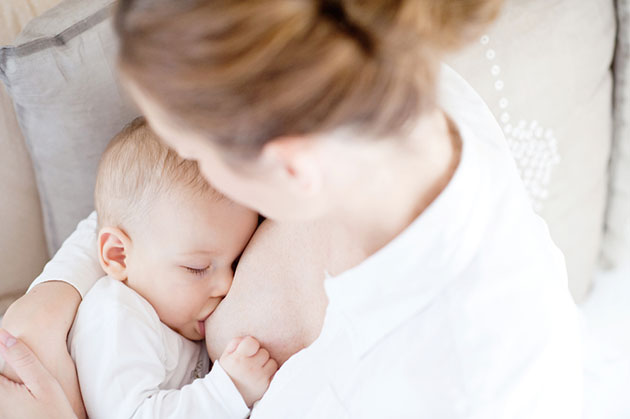
If you think your partner, relative or friend is experiencing the baby blues then here's how you can help: Reassure her that she is doing a great job Help around the house by putting some washing on, cooking some meals etc. Give... Læs mere »

A hard belly Loss of appetite Smelly poo and wind Crying and discomfort, pain or irritability before doing a poo Dry, hard, pellet like poo If your baby is breast fed they are less likely to be... Læs mere »

The 8 week review will be carried out either at your local doctor’s surgery or clinic, or at home by a health visitor and GP. You’ll stay with your baby at all times and you will be asked different questions while your health visitor will check that baby... Læs mere »

Co-parenting is about making joint decisions so that from day one your baby gets the same message from both of you and as your baby grows he will know that you are consistent and reliable in the way you help him. Children from positive co-parenting families are... Læs mere »

Babies start to feel anxious about being separated and at night this can mean a normally sleeping baby can wake up often. Your baby may be worrying that you won’t return and needs reassurance that you will return. Baby may also be teething or has decided... Læs mere »

Growth spurts happen at 2, 3 and 6 weeks and then at 3 and 6 months, but they may happen slightly earlier or later depending on when baby was born (premature, on time, or later than due date). A growth spurt helps your baby to grow and learn and will tend to... Læs mere »
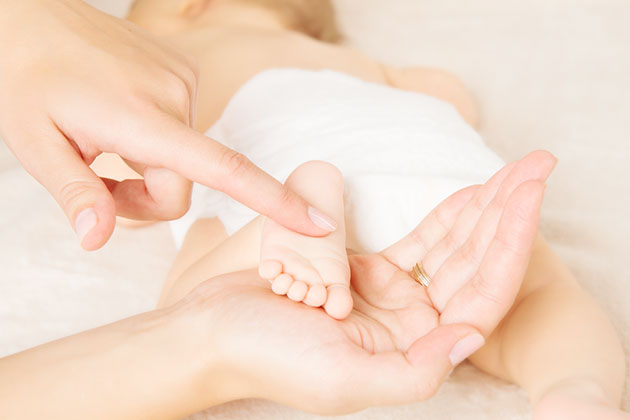
Getting to know your baby’s skin through massage is a great way to check for any developing problems such as dry skin or nappy rash and help you become more sensitive to baby’s needs. Massage is an excellent way to connect if your baby was born prematurely. ... Læs mere »

Babies need to feed very often, especially in the early weeks and months as they teach your body how much milk to make and to get the nutrients they need to grow and develop. When baby has the instinct to feed and be close to you, it can often make you feel like... Læs mere »

Most new mothers feel excited about getting to know their baby, but you may also feel very tired physically and emotionally as your body recovers from your labour and birth. For some families it helps to think of the first two weeks with a new baby as a 'baby... Læs mere »

All of these feelings are natural and oxytocin helps the ‘let-down’ reflex when we breastfeed. It also tends to make you feel relaxed and drowsy - that is natural as well so take the time to relax while you are feeding. All these feelings help to release... Læs mere »

Look out for playgroups and other social events to meet other mums and have a cuppa whilst your little ones learn to interact with other adults and children. Chatting with other mums who have ‘been there, done that’ will have a wealth of knowledge and information... Læs mere »

At Lansinoh we pride ourselves on having very efficient and quiet breast pumps that busy mums can use on the go as well as quietly at home. Our range of pumps gives you flexibility on how and when you pump. A manual breast pump can be used for those times... Læs mere »

Reducing the number of items you take out with you for baby’s needs seems an impossible task. If travelling by car it can be helpful to have a container in the boot where you can keep a stock of items – nursing pads, baby wipes, nappies, spare clothes, muslin,... Læs mere »

Whatever you do, listen to your body. If going full force back into exercising feels too overwhelming or difficult or it doesn’t feel right for any reason, take it slower and that’s ok. Swimming is a wonderful all-round exercise, and surprisingly easy... Læs mere »
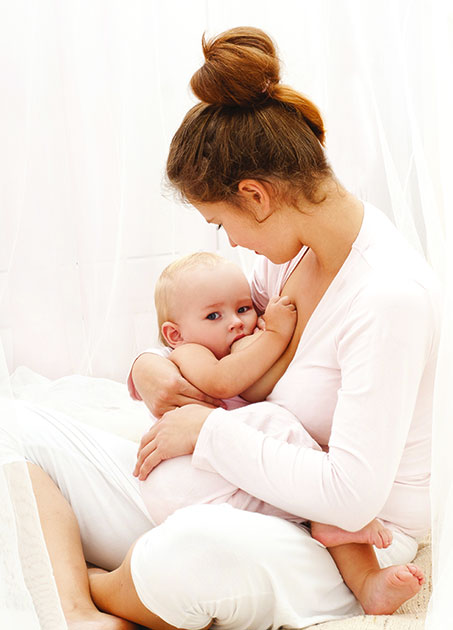
It is common around 4 months for babies to start sleeping less at night and there are very good reasons for this; none of which mean that you should question your milk supply or think about introducing solid foods in an attempt to get baby to sleep longer or through... Læs mere »
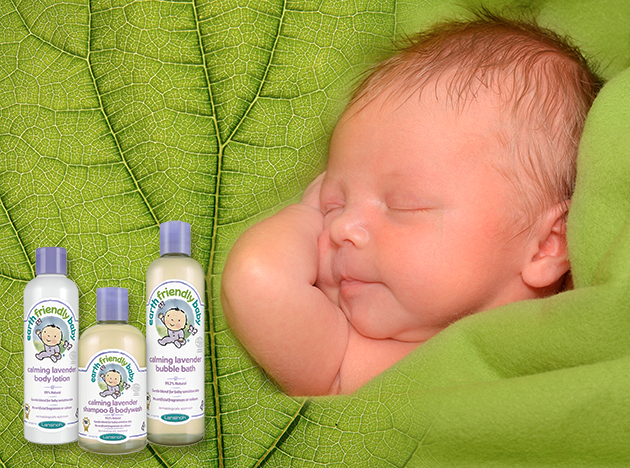
So what are some of the things you should look out for? Take time to look at the ingredients in your baby toiletries. Natural ingredients are ingredients that are of this planet and have been created using less intensive refinement and production methods than... Læs mere »

Particularly in the early weeks, baths are not essential for your baby. If you think about it, your baby does not really get all that dirty. Babies do have poos that end up in places you thought poo could never reach – but it does! In these circumstances... Læs mere »

Have you spoilt your child by being too responsive to his/her needs? Has something scary happened to them to cause this distress? The answer is ‘no’. Your little one is simply experiencing something called ‘separation anxiety’ and it is entirely normal,... Læs mere »
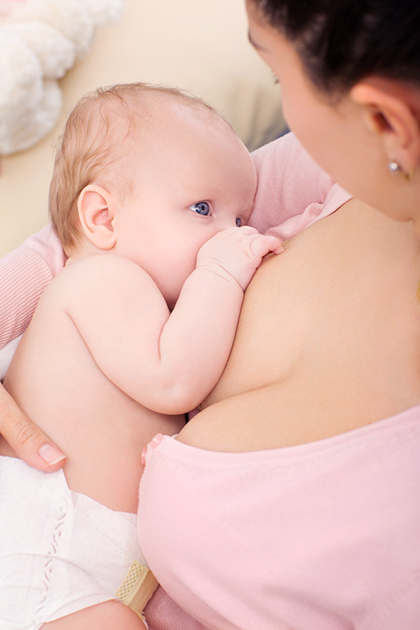
Breastfeeding is one of the ways in which you and your baby have attached and continuing to provide breast milk to your baby for as long as you both want will only build on the attachment you have had from the moment baby was put into your arms. Keeping baby... Læs mere »

Think about having a reunion with other mums you have met through parent education classes or how to meet new mums and babies through local groups. Now is an ideal time to take your baby to different environments and make friends especially if you are thinking... Læs mere »
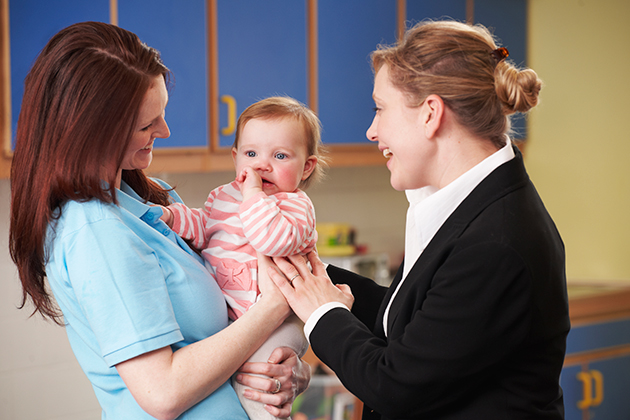
It is worth looking for childcare well in advance of when you may need it. This will give you a chance to look around for the different types of care available, the times you can use them and, most importantly, the cost. It is also worthwhile writing up a... Læs mere »
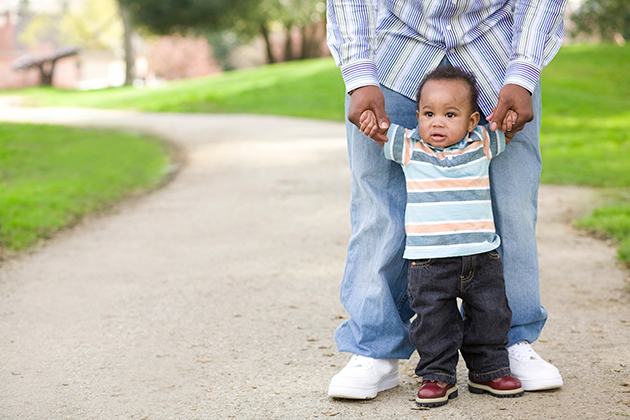
You may have seen your baby learning to crawl but to master the art of crawling they must be able to have their arms straight and their back straight so their body is in line with the floor; now they can crawl well on their hands and knees. Your baby may be... Læs mere »

Let your partner know how you are feeling. Many women worry that their partner may not find them as attractive as before, some worry that their partner may want to have sex before they are ready and most certainly all new mums will be feeling exhausted... Læs mere »

The relationship between yourself and your baby is one which allows both of you to be responsive to each other. Your baby shows you that he/she is getting ready for a feed and your breasts alert you that they are ready to feed baby. Care-givers don’t have... Læs mere »
To help busy mums, Lansinoh has come up with the concept of Pump, Store, Feed and Care to help give mums freedom to feed their nutritious breast milk when you are not around.
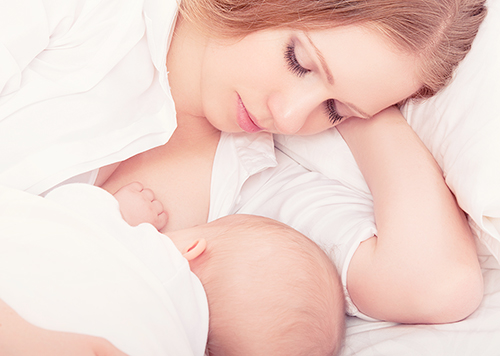
Across Lap - Cradle Hold With the across lap - cradle hold breastfeeding position, the baby’s head will rest in the crook of your elbow or on your forearm, with his whole body facing you, and will be supported with the same arm beneath his back and... Læs mere »

Many mothers report nipples to be sore and tender at first. Don’t panic if this happens to you, it is quite a common challenge that mums face, with 80-95% of mums experiencing some degree of nipple soreness. It’s often associated with poor positioning and attachment,... Læs mere »

Symptoms of Mastitis: develop a sore, hard lump in your breast feel unusual warmth in an area of your breast notice redness and soreness in this area experience general lumpiness after feeding feel... Læs mere »
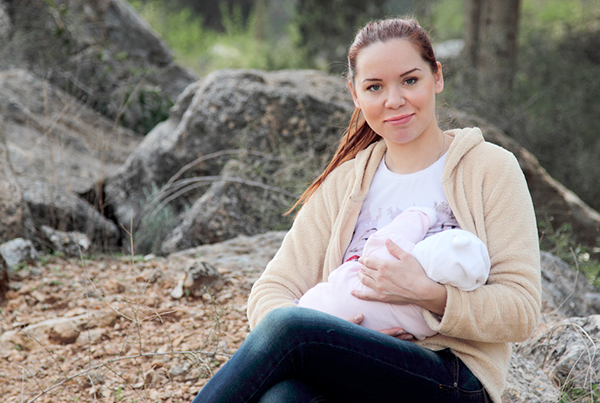
Many mothers visit a friend or somewhere with a mother and baby room for their first outing, but breastfeeding does not mean that you have to keep yourself and your baby hidden away when you breastfeed. You will quickly learn to recognise your baby's feeding... Læs mere »

Whether you're holidaying in the UK or abroad this summer, we've got some helpful tips that'll support your breastfeeding journey while you travel. Our top tips for breastfeeding while travelling... Læs mere »
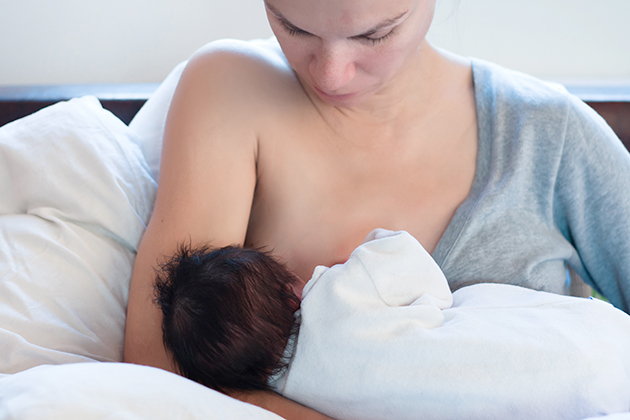
Bare bliv ved med at at tro på, at du giver din baby det bedst mulige måltid, som kommer med mange sundhedsmæssige fordele for både ham/hende og dig. Og selvfølgelig får du lov at nyde de magiske bånd amning giver. Du vil blive fascineret af at se din... Læs mere »

And when talking about sex, the one thing that can’t be missing is contraception. This may be the furthest thing from your mind after just giving birth, but many unplanned pregnancies happen in the first few months after childbirth, so better to be prepared if... Læs mere »
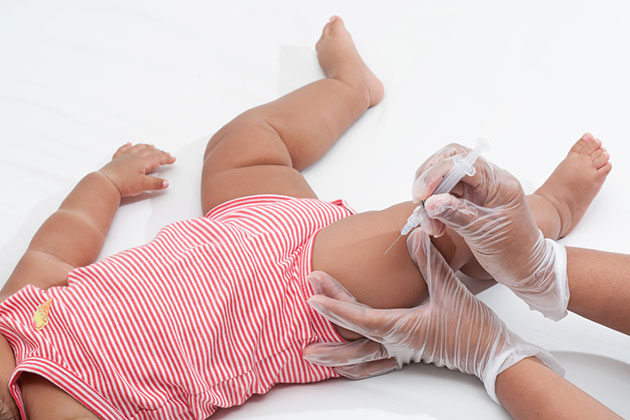
Below is a list of immunisations given in the UK up to the age of 4 years, at what stage they should be administered and what the vaccine protects against: 2 months 5-in-1 vaccine, also known as the DTaP/IPV/Hib is a single injection to the... Læs mere »

Helps the baby to develop mentally, physically and socially Keeps the baby more relaxed Cry and fuss less Increases bond with baby Eases signs of colic, constipation or trapped wind May improve weight... Læs mere »

When it comes to babies ‘less is always more’, and it is recommended to avoid the use of skin cleansing and moisturising products for the first few weeks. Just water will do great for the first 4 weeks! A sponge bath two or three times a week will keep your... Læs mere »

Create gift/wish list with all the things you need ahead of your baby arriving, you can make your gift list visible to your family & friends so that they can see what you need & would really like. There are lots of companies that you can use... Læs mere »

On the whole, engorgement is a great reassurance for mothers and lovely feedback to tell her breasts are responding to their newborn’s demands, but equally, engorgement is uncomfortable and, if not resolved or if in the presence of feeding issues, can lead to... Læs mere »

Breastfeeding is very important for your baby and for you. That's why here at Lansinoh we have put together some information to help you to succeed in your breastfeeding goals. We want to enjoy this precious time with your baby and we want to help you overcome... Læs mere »

Plugged/Blocked Ducts A plugged duct is an area of the breast where breastmilk is blocked. Feed from the affected breast first of all each feed – this ensures that your baby empties the breast helping to resolve the blocked duct and increase milk... Læs mere »

Teething is a very common cause of unsettled behaviour in your baby between the ages of 6 months and 2 years. The sensation of teething can cause increased saliva production (hence all the drool), an aching jaw and unpleasant pressure as teeth start pushing... Læs mere »

